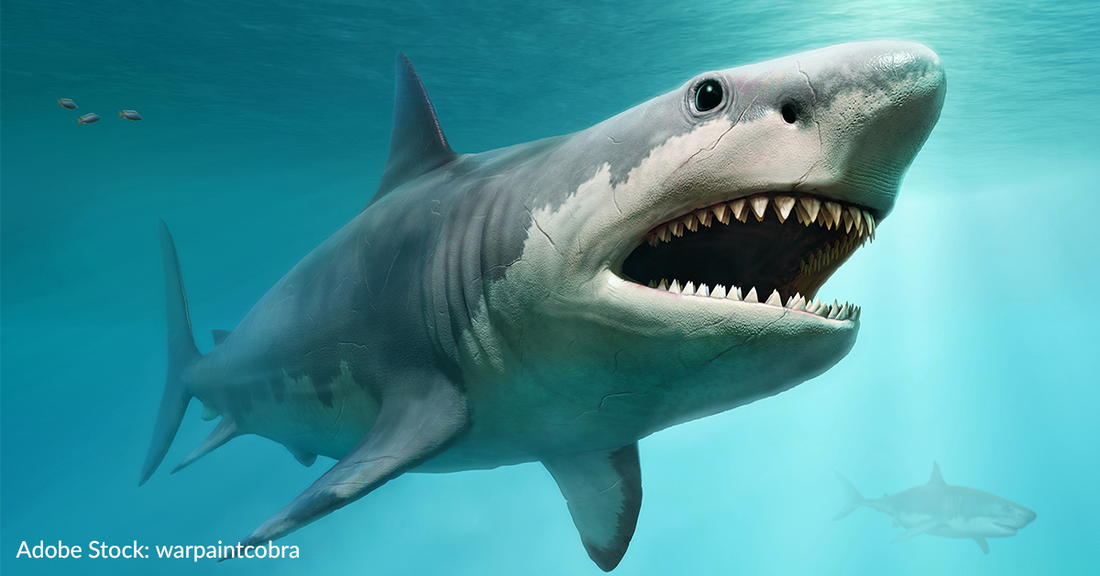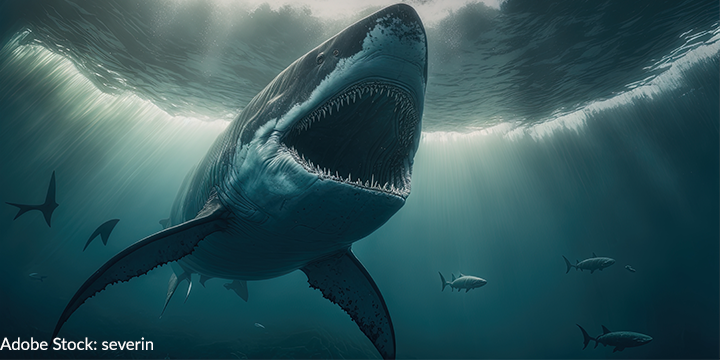What Caused The Megalodon - The Largest Shark That Ever Lived - To Go Extinct?
Andrea Powell
"Duunnn dunnn... duuuunnnn duun..."
A great white shark sends chills up the spine of most people, but just imagine a shark that is three times their length with teeth three times their size.
Sounds like a mythical beast, but it was a real shark that existed millions of years ago.
It was the megalodon - the largest shark that ever lived.
The massive apex predator ruled the oceans for millions of years feeding primarily on baleen whales. According to Britannica, their fossil remains have been found in shallow water along the coastlines of all continents, except Antarctica.
They resemble a white shark in appearance but are substantially larger. The adult females are larger than the males and are believed to have been over 80 feet long and weighed up to 143,000 pounds.
As if their size was not enough to frighten you, their bite force (40,000 pounds per square inch) is believed to be the most powerful of any creature that ever lived, states Ocean Conservancy.
Scientists have discovered many things about these sharks, but still have a lot of unanswered questions. Little is known about the shark's courtship, nursing, and when the juveniles leave their mothers.
But one thing that is certain is that megalodon sharks are extinct and have been for the past 2.58 million years.
What caused the megalodon to go extinct?
It may surprise you to learn that the shark that is believed to be a close relative and closely resembles the megalodon, but in smaller form, is partly responsible for its demise.
That's right, the great white shark.
Initially, researchers thought climate change impacted the temperature and level of sea water and caused the extinction of the megalodon. They believed the cooler temperatures made it difficult for sea life (like baleen whales) to manage their body temperatures and led to their death. The lower levels of sea water eliminated nursing areas and shallow feeding grounds.
While climate change played a part, later studies found that the decrease in baleen whales and an increase in competitors, like the great white and killer whales, likely pushed the gigantic shark into extinction.
Scientist Robert Boessenecker, from the College of Charleston's Geology and Environmental Geosciences Department, told Newsweek, "I fully expect that, if our hypothesis is correct—that modern great whites outcompeted C. megalodon—that modern great whites probably drive the ecology and survivability of other predatory sharks."
He went on to say that there is still so much unknown and to be discovered about marine ecosystems. "Many modern shark species are threatened or endangered, and the fact that the introduction of one new species may have been all that was needed to topple an apex predator lineage that had ruled the oceans for around 30 million years tells us that marine ecosystems—even without human-mediated climate change, ocean acidification, pollution, and microplastic accumulation—are likely more fragile, and poorly understood, than most people acknowledge".
The megalodon still lives on in movies and in nightmares...
Check out the video below to learn more interesting facts about megalodon sharks, and don't forget to share.
https://youtu.be/JZ7sYjHjRwY





